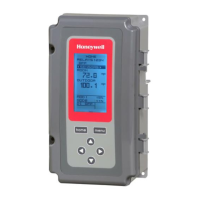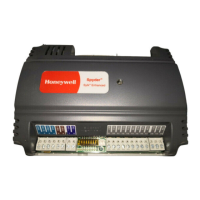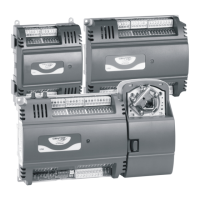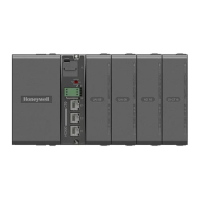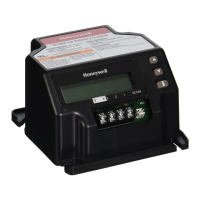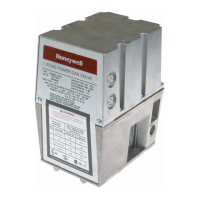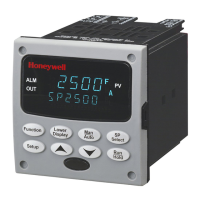Appendix
BC-200 Manual – P/N DOC-01-013 125
9.7.1.4 MODEM TO FIP CABLE
The modem is connected to the CPU debug port and uses a special serial cable with pin connections outlined
below:
DB9(male) Labelled CONN2
DB9 (male)
DB25 (male)
Pin 2 RX Pin 2 Pin 3
Pin 3 TX Pin 3 Pin 2
Pin 5 GRND Pin 5 Pin 7
Pin 7 RTS Pin 4 Pin 20
Pin 7 linked to 8 Pin 4 linked to 5
Notes:
All other pins should be left disconnected.
The cable is not bi-directional. When making or connecting the cable, make sure that each end is marked
and connected correctly to either CPU or Modem.
This cable can not be used to change the AT settings of the modem. A standard modem cable (modem to
PC) should be used for setting the modem options.
9
9
.
.
7
7
.
.
2
2
P
P
R
R
I
I
N
N
T
T
E
E
R
R
/
/
P
P
A
A
G
G
E
E
R
R
/
/
H
H
L
L
I
I
I
I
N
N
T
T
E
E
R
R
F
F
A
A
C
C
E
E
BC-200 can be interfaced to serial printers, pagers and nurse call systems using the printer port on the CPU
(CONN1). A global option on the FIP will enable/disable printing. Any standard terminal program or the BC-200
PCI history upload tool can be used to monitor the output of this port. An example of this text output is included in
the next section for reference.
9.7.2.1 PORT SETTINGS
Printer Port (Conn1) Settings
Mode RS-232
Baud Rate 9600
Data Bits 8
Stop Bits 1
Parity Odd
Handshaking Hardware CTS/RTS
9.7.2.2 FIP TO PRINTER CABLE
(DB9 Male) Labelled CONN1
(DB25)
(DB9)
Pin 2 (RX) - -
Pin 3 (TX) Pin 3 (RX) Pin 2 (RX)
Pin 5 (REF) Pin 7 (REF) Pin 5 (REF)
Pin
Pin
Pin
Pin
Notes:
Pin 8 (CTS) on the CPU side has to be high (+5v) for BC-200 to print. If the printer/pager does not
support Hardware handshaking (RTS signal), link pin 7 and 8 (on the CPU side) to allow printing
without handshaking.
A global option on the FIP will enable/disable printer output.
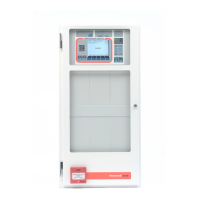
